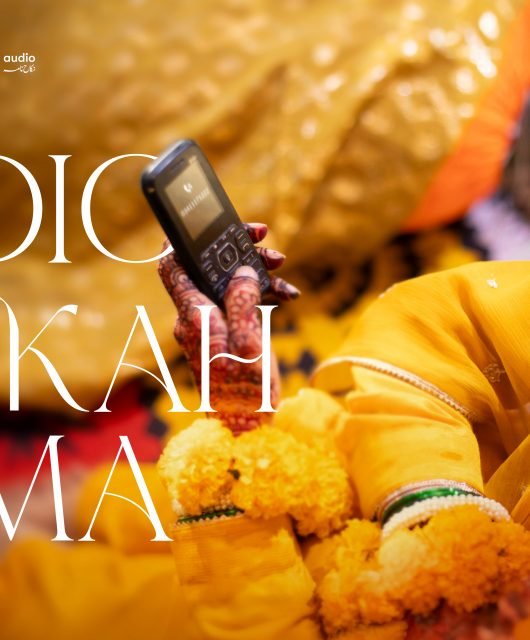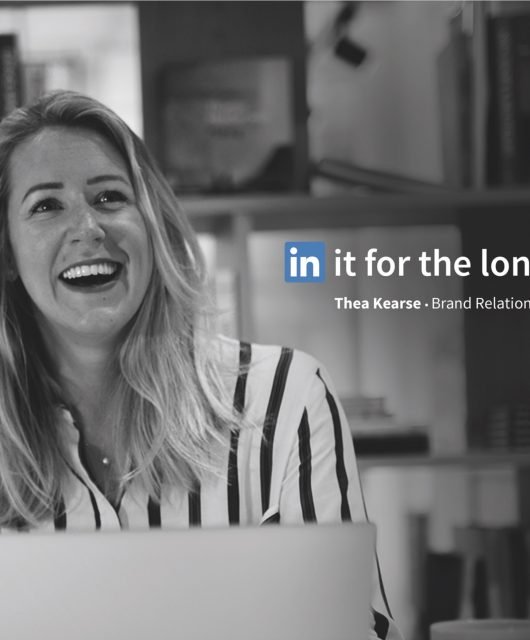Week: July 6th – 10th
by Interbrand
Several weeks ago, when the gravity of the situation became clear, Interbrand started regular reporting on how brands were dealing with the COVID-19 crisis. What’s now becoming clear is that the current climate is one of near perpetual disruption. So the brand consulting firm made the decision to keep on telling the stories of inspiring brand leadership and strategy amid the latest crises in an anxious world. Interbrand’s goal remains the same: to provide an up-to-the-minute source of information, inspiration and insight on brand moves as they happen.

Social media & Online
Hundreds of companies around the world have joined a temporary ad boycott against Facebook, but Chief Executive Mark Zuckerberg says he’s not worried and has no intention of changing its policies. Zuckerberg said the boycott is more of a PR issue than one that will hurt the social-media giant’s bottom line, according to remarks Zuckerberg gave at an employees-only virtual town hall.
“We’re not gonna change our policies or approach on anything because of a threat to a small percent of our revenue, or to any percent of our revenue,” he is quoted as saying. The #StopHateForProfit campaign was started by civil rights groups last month, calling for major companies to stop their Facebook ad spending for July to protest the company’s inability to rein in hate speech, threats of violence and misinformation on its platform.
A portion of the virtual town hall was streamed to the public from Zuckerberg’s Facebook page, where he announced some policy changes to crack down on hateful content and voting misinformation. But he was reportedly more blunt in private remarks to employees, saying Facebook would not cave to pressure. “You know, we don’t technically set our policies because of any pressure that people apply to us,” he said, “and, in fact, usually I tend to think that if someone goes out there and threatens you to do something, that actually kind of puts you in a box where in some ways it’s even harder to do what they want because now it looks like you’re capitulating, and that sets up bad long-term incentives for others to do that [to you] as well. My guess is that all these advertisers will be back on the platform soon enough.”
Organizers behind that #StopHateForProfit campaign claim that more than 400 brands have now pledged to not run ads on Facebook this month. Adidas, Ben & Jerry’s, Coca-Cola, Fcuk, Ford, Honda, HP, Microsoft, Pepsi, Starbucks and Volkswagen are among the companies to have backed the movement, increasing pressure on Facebook to address hateful content on its platforms.
A Financial Times report also highlighted the findings of a previously undisclosed survey of World Federation of Advertisers members, which found falling interest in social media marketing. The poll of 58 WFA member, which are responsible for $90bn of ad spending, found that almost a third will suspend spending on social media or are likely to do so, the FT reported.
Facebook is coming under attack on several fronts currently. In addition to criticism over its tolerance for controversial posts, the social media giant – which also owns Instagram and Whatsapp – has also faced condemnation for its failure to tackle Covid-19 misinformation.
The under-pressure firm, led by chief executive Mark Zuckerberg, yesterday launched a new ad campaign to help users identify false news. The company has also announced plans to begin prioritizing “original reporting and stories with transparent authorship” in its newsfeed. Facebook said it would also begin demoting “news content that does not have transparent information about the publisher’s editorial staff”, adding: “We’ve found that publishers who do not include this information often lack credibility to readers and produce content with clickbait or ad farms, all content people tell us they don’t want to see on Facebook.”
Microsoft has pledged to provide free digital skills training to 25m people around the world this year as it predicts a surge in global unemployment as a result of the coronavirus crisis. The initiative will pull together insights from Microsoft’s core software and cloud computing business as well as its LinkedIn and GitHub subsidiaries, and aims to identify skills that are most in demand, offer free access to relevant learning programmes, and provide skills certification for as little as $15.
According to Microsoft’s own estimates, global unemployment might hit 250m in 2020 because of the massive demand shock to the economy. In the US, according to the Congressional Budget Office, about 21m people may lose their jobs this year, taking the unemployment rate from 3.5 per cent to 15.8 per cent. The company hopes its “system of learning” will help satisfy a demand for more timely and flexible training programmes as the unemployed look to acquire new skills and employees adapt to the post-pandemic economy and the mass digitalization of many industries.
Media, Arts & Entertainment
The New York Times has ended its relationship with Apple News, saying the distribution deal doesn’t fit with the newspaper’s direct-to-consumer business model. “Core to a healthy model between The Times and the platforms is a direct path for sending those readers back into our environments, where we control the presentation of our report, the relationships with our readers and the nature of our business rules.
Our relationship with Apple News does not fit within these parameters,” New York Times Co. COO Meredith Kopit Levien said. Last year, as part of Apple’s effort to generate more revenue from subscription services, the company launched Apple News Plus, a $9.99 monthly service stocked with content from more than 300 publications, but The New York Times was never part of that.
New York Times Co. CEO Mark Thompson has expressed concern about news-aggregation platforms becoming so powerful that they could eventually replace traditional publishers, which he likened to the rise of Netflix in an interview last year. “We tend to be quite leery about the idea of almost habituating people to find our journalism somewhere else,” he said in the interview. “We’re also generically worried about our journalism being scrambled in a kind of Magimix [blender] with everyone else’s journalism.”
The first major online art auction since COVID-19 shut down most of the world’s auction house salesrooms seems to have been a success. The auctioneer stood at a rostrum surrounded by video screens at Sotheby’s London headquarters, where, by the time the nearly five-hour-long session concluded, it was well past 4am, fielding bids from his British colleagues as well as those in New York and Hong Kong. The marathon session spanned three auctions and over the course of nearly 80 lots, the sales brought in a total of $363.2 million, near the high end of Sotheby’s presale estimate of $262.1 million to $368.4 million, with a 93.2 percent sellthrough rate by lot.
Sports & Fitness
The 88th 24 Hours of Le Mans motor racing event will take place this year, on 19-20 September, with a smaller crowd than usual. Entry will be granted to all racegoers who have already booked tickets. Ticket sales have been suspended until further notice, pending government announcements and according to the evolution of the Covid-19 pandemic. Due to restrictions imposed during the Covid-19 pandemic, the race programme will be more streamlined and crowds thinner for this year’s event.
Pierre Fillon, President of the Automobile Club de l’Ouest, organizer of the 24 Hours of Le Mans, said: “Responsibility is one of our founding principles. We are therefore sure that our loyal spectators will understand our position and support our decision. We will not be breaking any attendance records this year. However, all the magic of the race will remain intact and the spectator experience – trackside or from a distance – will remain world-class.”
As the appeal of at-home workouts has increased during the pandemic, athletic apparel company Lululemon has entered into an agreement to buy home exercise startup Mirror for $500 million. The startup sells an immersive mirror through which customers can participate in fitness classes and personal training sessions.
Mirror, which launched in September 2018 and has raised $72 million from investors including Lululemon, is one of several companies changing the fitness landscape by making it easy for anyone to engage in live or on-demand interactive workout classes from the comfort of their home — with a substantial price tag. Mirror costs nearly $1,500 before tax and installation fees, plus ongoing subscription fees of $39 per month (for up to six people in a household) to access its on-demand or live classes.
Personal training sessions run an additional $40 each. While taking classes like cardio workouts, yoga and boxing, customers can see key metrics like their heartbeats-per-minute (or BPM) and calories burned. The device, which is controlled by an app on your phone, comes with fitness bands, a stand and a Bluetooth heart-rate monitor.
Retail
Retailer Walmart is converting 160 of its US store parking lots into drive-in movie theaters. As the pandemic continues, drive-in theaters have been making a comeback as a safe alternative to the traditional movie theaters that remain closed in much of the country. Walmart is partnering with Tribeca Enterprises, the Robert De Niro-backed media company, to program the films.
Locations and movie titles haven’t yet been announced, but they will be revealed later on a special website. The event will run through October and encompass more than 300 showings. Walmart will use the nearby physical stores to let people use curbside pickup for treats and food. Drive-in movie venues have been popping up all over the country, with small business owners forced temporarily to shut down their traditional theater operations opting to reopen old drive-in locations or build makeshift theaters in parking lots in a bid to make up for lost income.
Automotive
Tesla has overhauled Japanese rival Toyota to become the world’s most valuable automotive company. Despite never having made a profit, billionaire Elon Musk’s electric car manufacturer has been tipped by some pundits to achieve a valuation of more than $1tn (£800bn) as demand for electric vehicles soars. Shares in Tesla have climbed by more than 4% to more than $1,100 apiece, giving the company a valuation of $209bn, ahead of Toyota on $205bn. Analysts at stockbroker Jefferies said the coronavirus pandemic could accelerate the speed at which the world adopts cleaner fuels. “We see Covid-19 as an accelerator of the transition to EVs [electric vehicles] and renewables, from consumers and public policy,” they said. “Tesla remains significantly ahead of peers in product range, capacity and technology.”
Travel, Food & Hospitality
Expedia Group, the online booking conglomerate that owns travel agencies Expedia, Hotwire.com, Orbitz and Travelocity, has announced a $25 million initiative aimed at leveraging the brand’s media and advertising platform to help travel-related business weather the effects of the Covid-19 pandemic. The initiative will see Expedia match a portion of ads placed by destination marketing organizations (DMOs) and other travel businesses, up to $25 million.
That money will come from a previously announced $275 million commitment to support the travel industry, which has been particularly hard-hit by the coronavirus. “Destinations are a key element [of recovery],” said Wendy Olson Killion, Expedia’s vice president of business development. “We are coming to the table with $25 million of value to extend campaigns.
Based on different tiers, we’re able to provide a considerable match on a campaign.” For example, a DMO spending $100,000 on a campaign with Expedia’s advertising platform will get a percentage of that spend in additional paid social across Expediaowned channels and brands.
Although Olson Killion declined to provide specifics on the tiers of matching funds, she said the offer was available to everyone from the “smallest city players” to state and national tourism bureaus. Participants so far include the Las Vegas Convention and Visitors Authority, Destination Canada and Los Cabos, Mexico. Other initiatives include Expedia covering the cost of a coupon or discount across its brands like Hotels.com, which can be used by travelers to book a stay. Another will let Expedia, on behalf of the DMOs, target curious travelers through email.
Food delivery is still a thriving market and consolidation is still on the menu. Uber is close to a deal to buy Postmates, the US food delivery service, for $2.6 billion, on the heels of Uber’s failed attempt to buy Grubhub.
Buying Postmates would bolster Uber Eats as Uber’s core ride-hailing business is floundering. And it would be a lifeline for Postmates, one of the first gig-economy delivery services, which has struggled amid competition from Uber Eats, Grubhub and DoorDash. However, a deal could raise antitrust alarms, with regulators wary of consolidation in the sector. Uber walked away from Grubhub over antitrust concerns. Buying Postmates could attract regulatory scrutiny, too. On the other hand, Postmates is much smaller than Grubhub, which agreed to sell itself to Just Eat for $7.3 billion last month, or DoorDash, which was last valued at $16 billion.
More than a year after Amazon announced that it would lead a $575 million investment into UK food delivery startup Deliveroo, the country’s competition regulator, the CMA, has finally announced that it has provisionally cleared the deal, saying that it does not pose any threats to potential competition. The investment gives Amazon a 16% stake in Deliveroo. Deliveroo, according to its statements to the CMA, has gone from near bankruptcy to relative financial health during the lockdown. It also says corporate purchases of its virtual gift cards is up 15x – ie more firms are paying for remote workforce to have a free lunch. Deliveroo said average monthly spend per meal was up 40% March-May.
To read the full report, please download here.
To access daily Brand Moves, please visit www.brandchannel.com.





